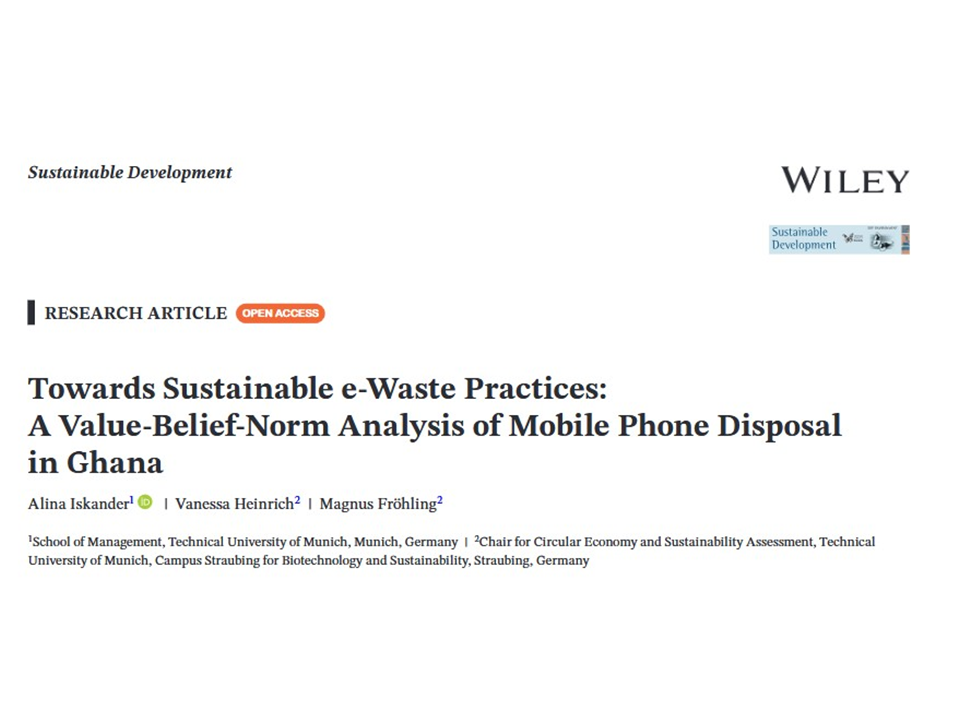Alina Iskander, Vanessa Heinrich and Magnus Fröhling apply the Value-Belief-Norm (VBN) theory to investigate what motivates or prevents people from creating and engaging in sustainable mobile phones disposal practices in Ghana. The study is the first of this kind in the Ghanaian context.
Ghana experiences rapid mobile phone adaptation, with a penetration rate exceeding 100%, which makes phones an integrated part of economic and social activities.
In low- and middle-income countries such as Ghana, formal collection systems are often underdeveloped, leading to widespread reliance on informal handling, which raises environmental and health concerns and results in the loss of valuable materials. In Ghana, current disposal practices include reuse through donation, repair, or resale as second-hand goods, and recycling by selling devices to scrap dealers and peddlers. Mobile phone repair is dominated by informal business, prolonging device lifespans and creating economic opportunities. However, these businesses are also characterized by improper recycling standards which lead to soil and water contamination and significant health risks.
The VBN theory explains how values, shape pro-environmental behaviours. Two modifications were introduced in the VBN framework to adapt to the context of Ghana’s e-waste context. The study tested several hypotheses regarding the relationships between the model’s constructs. It reveals, among others, that materialistic values are a key psychological barrier to pro-environmental beliefs, reinforcing the conflict between materialism and environmental worldviews. Key practical implications involve interventions that reframe sustainable behaviors as aspirational, ensure transparency and economic advantages.
This is a valuable read for those interested in circular economy, consumer behavior, e-waste management, and sustainability in the Global South.
You can access the full publication here.
